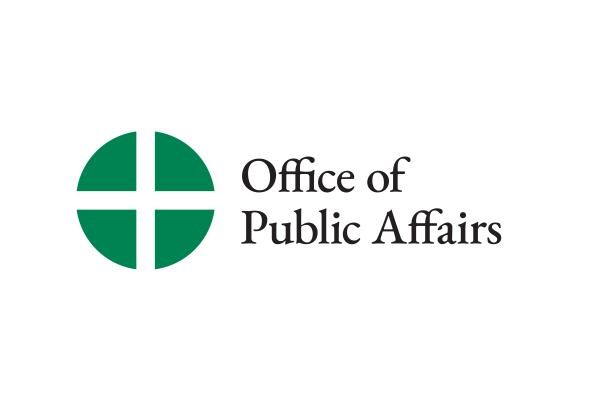Bishops To Vote On Canonical Step For Dorothy Day Canonization
WASHINGTON—The U.S. bishops will engagein a canonical consultation regarding the cause for canonization of DorothyDay, a pacifist and convert to Catholicism from New York City. Thisconsultation will take place during the bishops' General Assembly November12-15 in Baltimore.
WASHINGTON—The U.S. bishops will engagein a canonical consultation regarding the cause for canonization of DorothyDay, a pacifist and convert to Catholicism from New York City.
Thisconsultation will take place during the bishops' General Assembly November12-15 in Baltimore.
Dorothy Day dedicated her lifefighting for justice for the homeless in New York City and was co-founder theCatholic Worker Movement.
Biographical materials provided bythe New York Archdiocese note she was born in Brooklyn, New York, on Nov. 8,1897. Her parents moved to San Francisco and she was later baptized in theEpiscopal Church. Her family later moved to Chicago, and she attended theUniversity of Illinois at Urbana. In 1916 left college to go to New York Cityto work as a journalist on social newspapers.
Her biographies describe a politicalactivist who participated in protest marches and developed friendships withfamous artists and writers. At the same time she experienced failed loveaffairs, a marriage, a suicide attempt and an abortion.
A key moment in her life occurred in1926 with the birth of her daughter Tamar. She embraced Catholicism and hadTamar baptized to the dismay of her associates and ending her common-lawmarriage. She reported for several Catholic magazines, including America and Commonweal, as she struggled to find her role as a Catholic. In1932, she met Peter Maurin, a French immigrant and former Christian Brother,with whom she co-founded The CatholicWorker newspaper. Work at TheCatholic Worker led to the founding of several Houses of Hospitality andfarm communes in the United States and other nations.
Day's life wasmarked by fidelity to the Scriptures, voluntary poverty, the works of mercy andwork for peace and justice. She was shot at while working for integration andprayed and fasted for peace at the Second Vatican Council. She died November29, 1980, at Maryhouse in New York City, where she died among the poor.
Thecanonical consultation is a procedural step in the process toward canonization.Church law governing canonizations as found in the Vatican document Sanctorum Mater requires that thediocesan bishop promoting a canonization cause to consult at least with theregional bishops conference on the advisability of pursuing the cause. CardinalTimothy Dolan, president of the U.S. Conference of Catholic Bishops (USCCB) andhead of the Archdiocese of New York, is seeking the consultation of the fullbody of bishops.
Day already carries the title "Servantof God," a designation awarded by the Vatican when it gave her cause a Nihil Obstat, that is,a formal declaration that the Vatican hasno objection to the cause movingforward.
---
Keywords: Dorothy Day, Catholic Worker, Peter Maurin,Cardinal Timothy Dolan, America, Commonweal, Second Vatican Council
#####
MEDIA CONTACT ONLY:Sr. Mary Ann WalshO: 202-541-3200M: 301-325-7935Email
